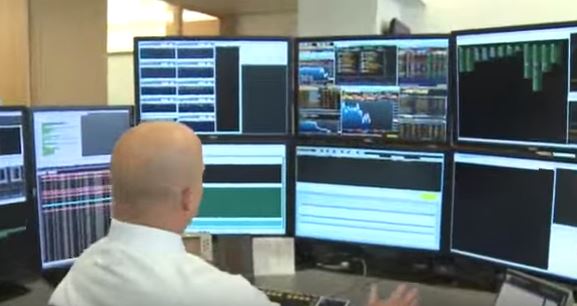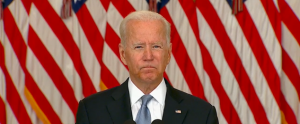
August 2, 2019. The Guardian: Donald Trump’s surprise decision to escalate the trade war with tariffs on another $300bn of Chinese goods has sent global financial markets into a tailspin.
After sharp falls on Wall Street in the wake of the US president’s announcement on Twitter on Thursday, Asian share prices plummeted on Friday morning as growing hopes that the world’s two economic superpowers would be able to reach a deal were dashed.
In Tokyo the Nikkei was down 2.3%, with a similar fall in Hong Kong and Shanghai. The Kospi was down 0.8% in Seoul while in Sydney the benchmark ASX200, which passed its pre-global financial crisis all-time high on Tuesday, fell 0.3%.
On the commodities markets the price of Brent crude oil plunged 7%, its biggest fall for four years, although it recovered 2.5% on Friday to $62.01.
Trump’s decision was also likely to increase the chances of another cut in US interest rates with the prospect of worsening trade with China forcing the Federal Reserve to loosen monetary policy again in September. It follows Wednesday’s 0.25% reduction, which was widely seen as not being enough to please the president who has been very vocal in calling for lower rates to boost the economy.
As a signal of lower rates to come, the 10-year US bond yield fell almost 12 basis points on Thursday to 1.902%, hitting the lowest level since Trump won the presidential election in November 2016.
The US dollar also fell and stockmarkets in Europe and the US were braced for a turbulent last day’s trading of the week. The FTSE100 is set to drop 1% at the opening and the Dow 0.3%.
Investors had hoped that the resumption of talks between the US and Chinese negotiating teams in Shanghai this week would pave the way for a deal. Such an outcome looked even more likely when the White House said on Thursday that China was coming into line with a key request to buy more agricultural produce such as soy beans.
Less than 15 minutes later the president tweeted that China had not committed to buying more produce and had also failed to fulfil a pledge to cut sales of the opioid fentanyl with the result that “many Americans continue to die”.
The proposed new tariffs would cover almost all Chinese exports to the US and impact a huge range of consumer goods, pushing up prices for consumers and bringing the prospect of retail job losses.
Neil Wilson, chief analyst at markets.com in London, said: “The sharp shooters have given way to the heavy artillery. The trade war just got very hot, just as we thought things were improving.”
Speaking in Bangkok on the sidelines of the Asean regional summit, the US secretary of state, Mike Pompeo, said on Friday that “decades of bad behaviour” from China had forced Washington to introduce tariffs.
However, senior Chinese diplomat Wang Yi was also in the Thai capital and said the tariff threat was “not a correct or constructive way” to resolve the dispute. Wang’s comments underlined the view of many observers that the threat makes a resolution less likely, partly because one of China’s main criteria for a deal is that existing tariffs should be scrapped.
Here's your chart of the day. Trump's tariffs now cover virtually all of U.S. imports from China.
Good morning from the Asia Pacific. pic.twitter.com/Wz9qNC5wEg
— David Ingles (@DavidInglesTV) August 2, 2019
Bill Bishop, author of the influential Sinocism newsletter, said the surprise move would instead strengthen Beijing’s resolve to sit tight and wait out the Trump presidency.
Despite the negative impact on Chinese exports, Trump had given president Xi Jinping more cover against internal criticism that was mishandling relations with Washington, Bishop argued. US businesses could now expect “an intensification of non-tariff measures that penalise American firms and executives”.
“The new status quo in US-China relations is that there is no status quo and we are in an increasingly unstable and unpredictable new era,” he wrote on Friday morning.
Likewise, China’s Global Times newspaper said Beijing would focus more on efforts to survive a prolonged trade war. Hu Xijin, editor-in-chief of the Communist party-backed newspaper, wrote on Twitter: “New tariffs will by no means bring closer a deal that the US wants; it will only make it further away.”
The trade dispute between Japan and South Korea also worsened on Friday when the government in Tokyo removed its neighbour from a so-called white list of favoured export partners. The move defied warnings from Seoul that it would have “grave consequences” for security ties between the US allies.
Japan says the move is necessary for national security, accusing Seoul of violating export rules, but the measure comes with the countries mired in a long-running dispute over second world war forced labour in South Korea.




